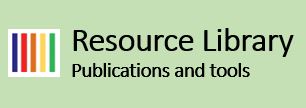07/11/2017 - From poverty to prosperity: taking community resilience to scale to close the financing gap

Without significant investment to improve the resilience of cities around the world, climate change may push up to 77 million urban residents into poverty by 2030. Globally, only 16% of the finances is spent on adaptation to growing impacts, while 84% is for mitigation of greenhouse gas emissions. From adaptation funds only 8% goes to vulnerable communities.
Facilitation: Ms. Thandie Mwape & Ms. Sanne Vermeulen, Partners for Resilience
Panellists
- Mr. Yohan Santosa, Programme Coordinator Karina Indonesia, on upscaling urban resilience at city & province level (Partners for Resilience)
- Mr. Isaac Kabongo, Director ECO-Uganda, on how to influence sustainable models in climate resilient investments (Partners for Resilience)
- Mr. Soenke Kreft, Executive Director, on climate insurance initiatives for vulnerable groups: innovations, projects and policy guidance (Munich Climate Insurance Initiative)
Key issues have been discussed during the event, introduced by our panellists: How to scale-up and bolster finance for approaches to enhance community resilience? How can we take community resilience to scale through coherent sectorial planning, policy coherence and aligning landscape, ecosystem and climate-smart DRR approaches?
This interactive side event brought together best practices, innovative business models, and success factors for up-scaling. Main take aways from the lively debate were the following:
- Each resilience initiative should begin with the needs of the communities.
- Integrated approaches work best to fight the consequences of climate change
- Any investments to be made should take possible consequences into account and ensure they will not cause any harm to communities or the environment.
- Therefore risk informed investments should be promoted at all times!!





